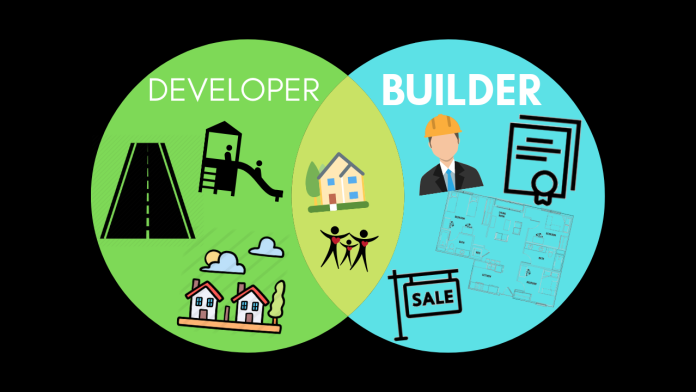1. What is a construction company?
Building residential, commercial, and industrial structures is the area of expertise for a construction company or contractor. They offer labor, site preparation, material procurement, and project completion under design plans and codes. Reputable construction companies have excellent project management abilities and are bonded, insured, and licensed to produce high-quality results on schedule and within budget. Many concentrate on particular markets, such as custom homes, high-rises, and roads.
To start a construction company, its founders need to get the right insurance and business licenses, hire skilled workers, buy tools and equipment, secure funding, set up safety procedures, be eligible to bid on projects, establish a strong network, and take advantage of training programs to acquire the vast range of skills this industry requires. Growth also depends on marketing and branding strategies that work.
2. What is a property developer?
A property developer plans and directs the entire life of real estate projects. The completion of feasibility studies, site selection, project design, permit acquisition, funding acquisition, contractor employment, construction supervision, and sales or leasing fulfillment are important duties. Developers oversee the entire process, including design, financing, construction, marketing, and sales, as opposed to building the project themselves.
To become a developer, one needs to have access to finance, networking talents, legal and financial knowledge, analytical skills, project management abilities, and the perseverance to finish challenging projects. Creating a niche in anything like malls or inexpensive housing is beneficial. Those interested in this professional line would benefit greatly from obtaining an education in real estate, finance, and planning.
3. Differences
Although developers and construction companies collaborate closely, there are a few important distinctions between them:
- Projects are designed and managed by developers, while contractors carry out the actual building.
- While developers need financial resources and commercial expertise to organize real estate deals, contractors need trade skills and tools to build.
- Contractors get paid for their labor, supplies, and knowledge. By adding value and leasing or selling finished projects, developers make money.
- Construction companies control risks related to schedules, material costs, and worker safety. Risks that developers must deal with include getting money, getting permits, market swings, and more.
- Contractors must be skilled construction workers. Developers need to be astute coordinators and strategists for business.
4. Similarities
Despite playing different roles, developers and construction companies have some things in common, such as:
- Both are essential to the process of developing real estate.
- The overall state of the economy has a significant impact on success.
- Building good working ties and trust between one another is essential.
- It is essential to have an in-depth understanding of building codes, procedures, and regulations.
- Capabilities for managing risks are equally important for both.
- They rely on contracts with suppliers, investors, subcontractors, and so forth.
- Opportunities for subsequent projects are impacted by reputation and referrals.
Structures are built by construction businesses. To enable construction, developers organize funding, licenses, contractors, and other resources. Despite having different strengths, both are vital in building the environments in which we work, play, and live. Gaining insight into their separate yet complementary responsibilities offers a significant view of the ecosystem of real estate development.



























